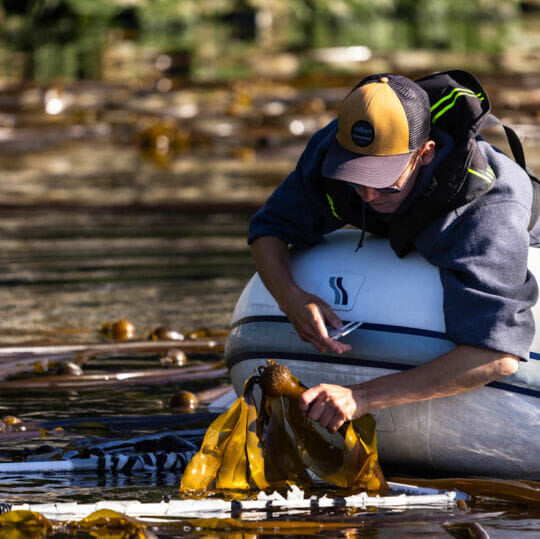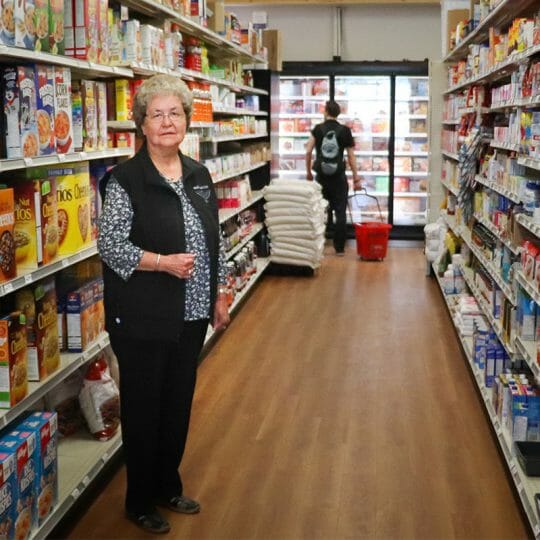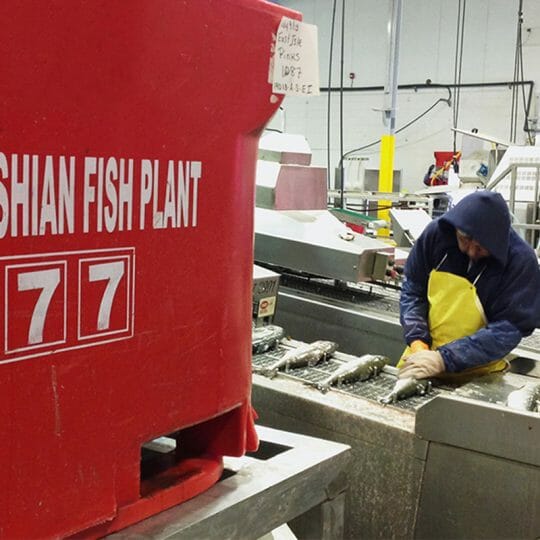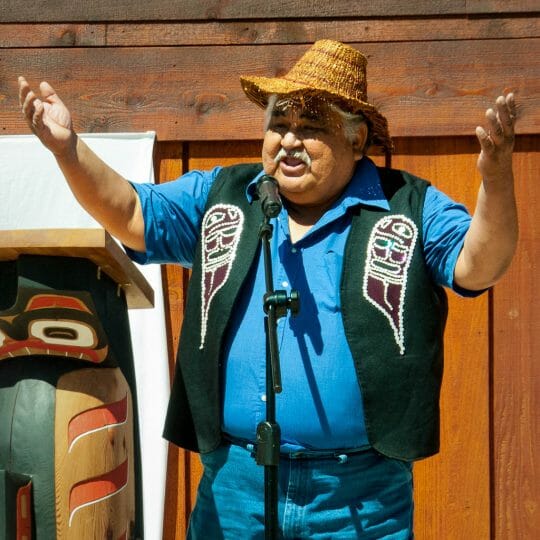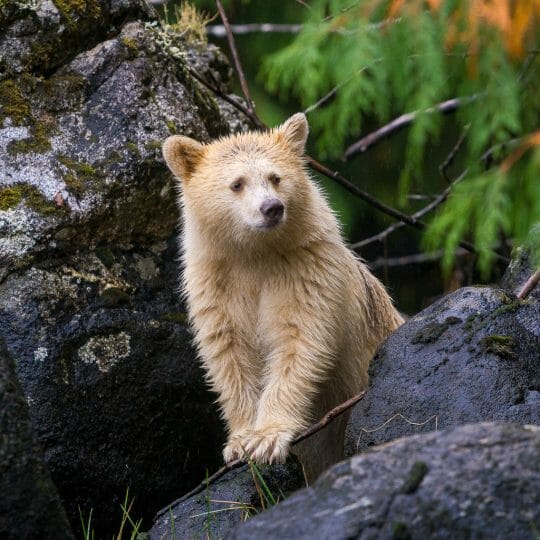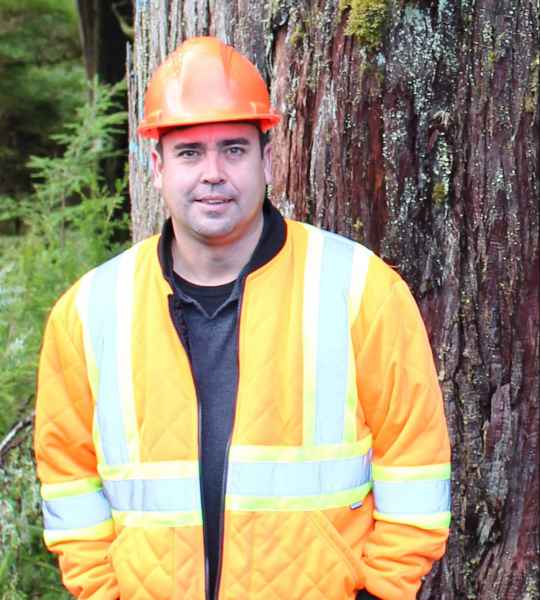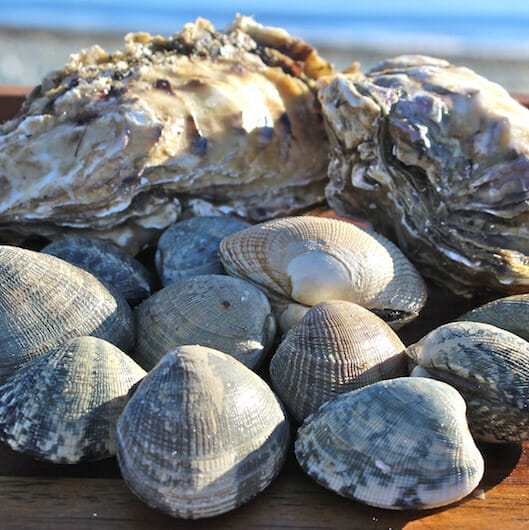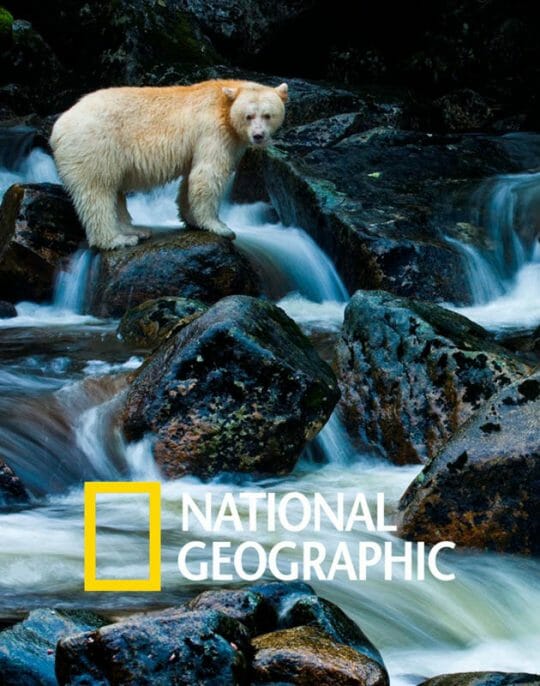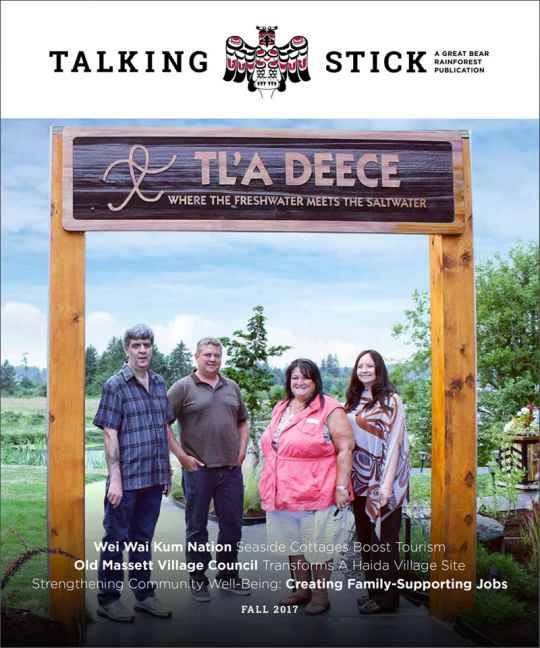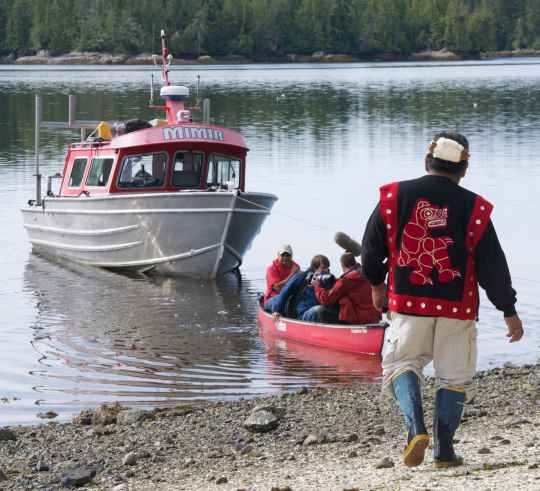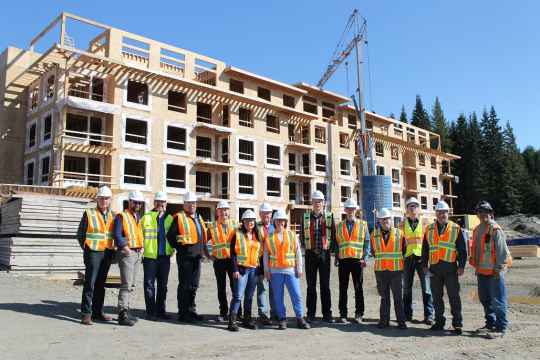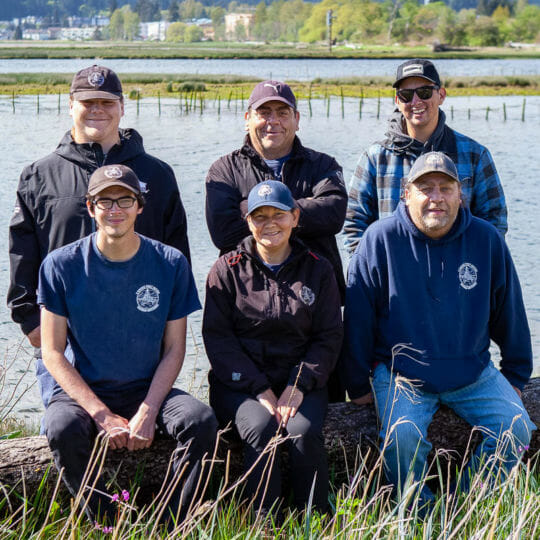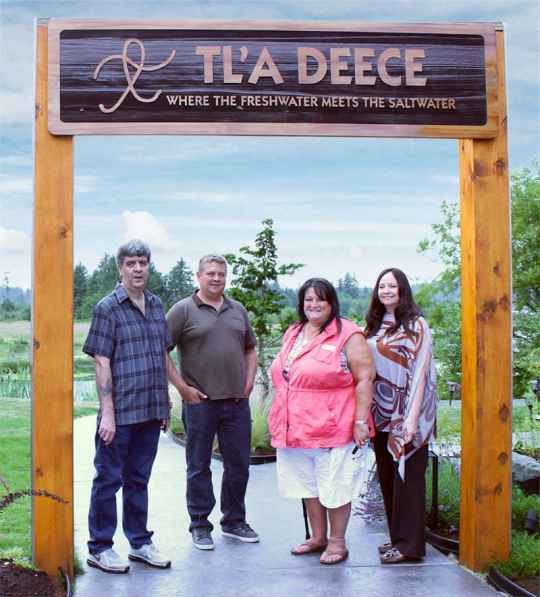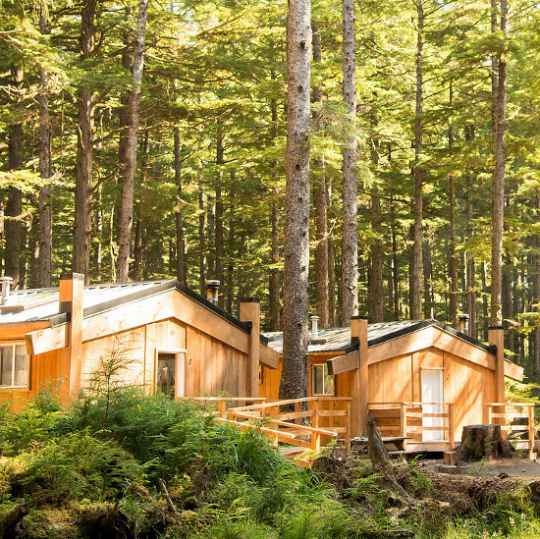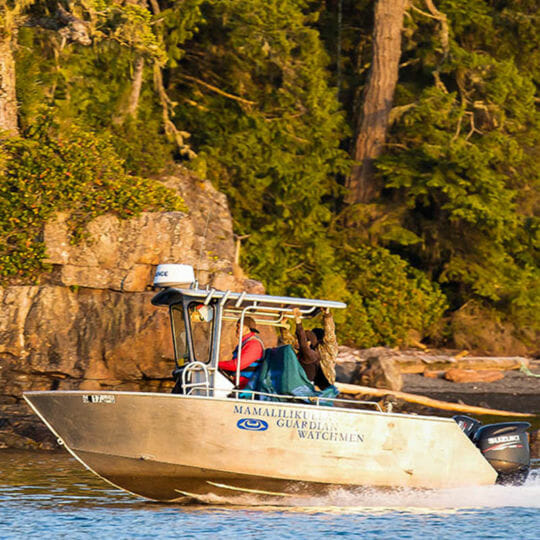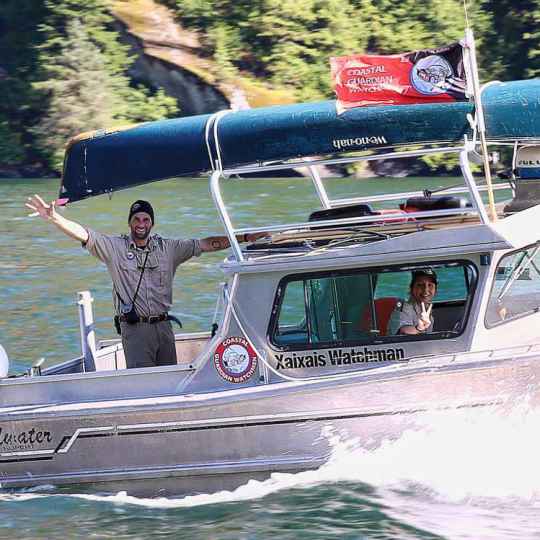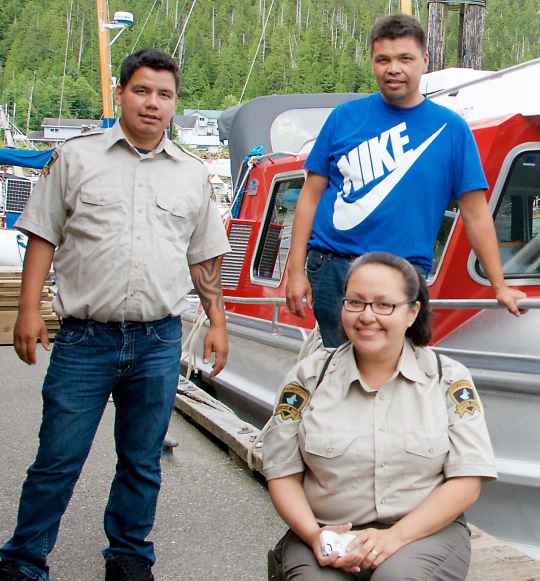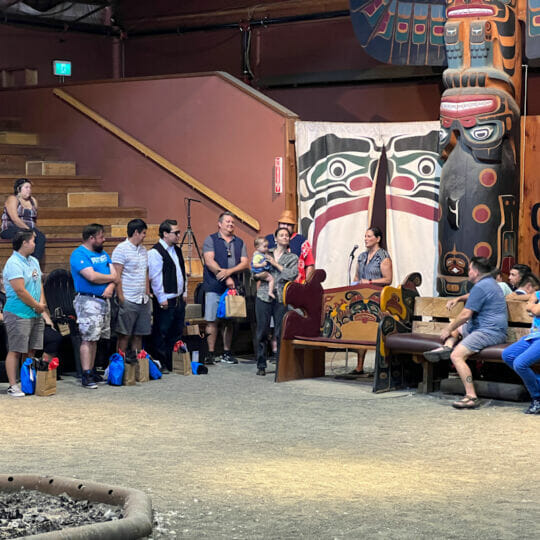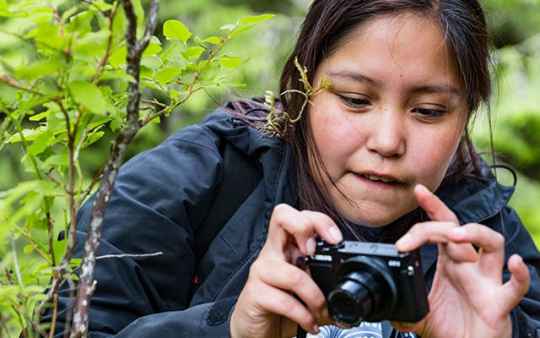Social Empowerment
First Nations are empowering their community members through new employment opportunities, increasing income levels, professional certifications, and higher education.
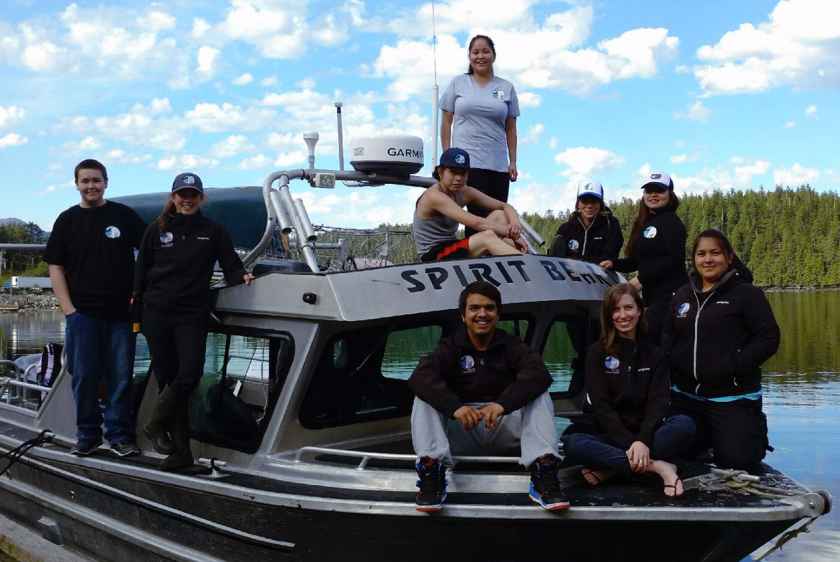
By increasing the number and stability of family-supporting salaries in the region while also making long-term investments in workforce development, First Nations are increasing the health and resiliency of their communities.
First Nations are creating new opportunities for their people to work, learn, and apply their knowledge and skills throughout the Great Bear Rainforest and Haida Gwaii. Their conservation and economic development initiatives are increasing income levels, providing significant on-the-job training programs, and investing in community members’ achievement of certifications and attendance at colleges and universities.
Social Empowerment Outcomes
First Nations are providing new family-supporting employment opportunities and retaining community members in the Great Bear Rainforest and Haida Gwaii.
Creating New Employment
First Nations have created 1,292 permanent new jobs (comprised of full-time, part-time, and seasonal positions) with a full-time equivalency of 780 through investments with Coast Funds. Of these jobs created, 993 are held by First Nation community members, which is equivalent to 13% of the working-age population of First Nations communities in the region.
Community Well-Being Impact
New employment opportunities enable people to remain in their home communities with family-supporting income levels. These positions counter the migration of local populations to urban centres and provide alternative employment to workers in resource-dependent industries that are affected by changes in global commodity prices. These positions offer career paths to youth to develop skills that they can apply locally. Part-time and seasonal positions offer flexibility for members who are self-employed in seasonal sectors of the economy and who participate in cultural activities, such as fishing and harvesting.
We’ve always tried to work locally, with local contractors before we go outside. We give the options to everyone and we always try to keep it local as much as we can. That’s really important to us.
— Harold Leighton, CEO of Metlakatla Development Corporation
Related Stories
Wei Wai Kum Guardians: In the Steps of Our Ancestors
For millennia, the Wei Wai Kum, part of the Laich-Kwil-Tach group of First Nations, have watched over and cared for the lands and waters in their territory. Today, the Nation’s Guardians combine traditional knowledge with scientific tools to carry out that responsibility in a modern way, bringing their findings back to decision makers.
A Generational Investment: Haíɫzaqv Acquire Shearwater Resort and Marina
The Heiltsuk Tribal Council has purchased Widsten Holdings Inc., which includes the Shearwater Resort and Marina, as well as other related businesses. Through its Haíɫcístut (reconciliation) process, the Heiltsuk Tribal Council has negotiated agreements with the governments of Canada and British Columbia, which include funding for economic development.
Rebuilding the Heart of Wáglísla: Haíɫzaqv Invest in Community-owned Grocery Store and Bakery
When the historic Wáglísla band store was lost to a fire in 2013, community members in Bella Bella responded with quick-thinking, hard work, and a lot of love to build a new commercial complex specially tailored to the needs of Haíɫzaqv People.
Coast Tsimshian Seafood: How Lax Kw’alaams Shifted to a Sustainable and Locally Owned Fishing Industry
The purchase and renovation of a seafood processing facility has created a major economic driver in the coastal community of Lax Kw’alaams.
Reclaiming Control: How the Gwa’sala-’Nakwaxda’xw are Determining their Economic Future
Through in-depth community consultations, the establishment of the k̓awat̕si Economic Development Corporation reinvigorated the economic heartbeat of a community.
The Success of Spirit Bear Lodge: How a Remote, Community-led Business Became a Global Model for Ecotourism
Spirit Bear Lodge, owned and operated by Kitasoo/Xai’xais Nation, has become a successful model for conservation-based ecotourism. The Lodge has helped strengthen economic, conservation, and cultural well-being in the community of Klemtu.
First Nations are increasing local incomes that support families throughout in the Great Bear Rainforest and Haida Gwaii.
Increasing Personal Income Levels
As a key element of conservation and economic development initiatives, First Nations have invested $63,748,507 in local family-supporting salaries through investments with Coast Funds.
Community Well-Being
First Nations are supporting the well-being of members by providing family-supporting incomes through conservation programs as well as the start-up and expansion of local businesses. These wages are spent locally in remote communities and act as an important economic multiplier, building stronger, and more resilient local economies.
We invested funding from Coast Funds to assist with salary costs related to our involvement in ecosystem-based management implementation, as well as the costs of community engagement regarding that work.
— Dallas Smith, President, Nanwakolas Council Society
Related Stories
Taan Forest: Protecting Haida Values through Sustainable Forestry
Ownership of their own forestry company has ensured the Haida are able to regulate logging activity on their land and protect important areas for the benefit of their people.
Salish Sea Foods: Investing in the Comox Valley
Strategically investing in a processing plant has enabled K’ómoks Nation to expand their existing business, create local job opportunities, and produce delicious seafood.
National Geographic Features Kitasoo/Xai’Xais Nation and Spirit Bear Lodge
Estimated Reading time

2 Mins
In 1999 Kitasoo/Xai’xais launched Spirit Bear Lodge from a little red-roofed float house anchored at Klemtu’s docks. Today a luxurious new lodge accommodates visitors from around the world, most of whom come to tour the nearby islands in hope of spotting and photographing bears.
Talking Stick – Fall 2017
Estimated Reading time

2 Mins
The fall 2017 issue of Talking Stick features the Wei Wai Kum Nation’s new seaside cottages in Campbell River, Old Massett Village Council’s longhouse village at Tlielang (Hiellen), and how First Nations are creating family-supporting jobs across the coast.
Gwa’sala-‘Nakwaxda’xw Showcase Culture and History in Unique New Hotel on Vancouver Island
Estimated Reading time

2 Mins
Gwa’sala-‘Nakwaxda’xw Nation creativity and entrepreneurial optimism shone May 17 in Port Hardy during a ceremony to officially launch the Kwa’lilas Hotel, a game-changing economic venture for its people and a significant contribution to the tourism offerings of Vancouver Island.
Haisla Town Centre Construction Moving Forward in Kitimat
Estimated Reading time

2 Mins
The first phase of Haisla Nation Council’s major land redevelopment project in downtown Kitimat, BC is under construction for completion by the end of 2016.
First Nations are building community members’ skills, knowledge, and experience with on-the-job workforce development and applied training programs.
Workforce Development and Skills Training
First Nations have conducted 586 initiatives that have trained 1,588 people and provided 22,471 training days through investments with Coast Funds.
Community Well-Being Impact
First Nations are investing in training to enable their citizens and community members to work at new organizations in the region and meet the growing demand for skilled workers. This training includes data analysis, ecological restoration work, ecotourism guiding, safety, first aid, and vessel operation, all of which are growing areas of demand for skills employees throughout the Great Bear Rainforest and Haida Gwaii.
We look to develop our workers at every opportunity. Taan Forest staff have participated in sustainable forestry management training, extensive first aid on-the job-training, and forest engineering training.
— Bob Brash, Chief Executive Officer, Haida Enterprise Corporation
Related Stories
A Generational Investment: Haíɫzaqv Acquire Shearwater Resort and Marina
The Heiltsuk Tribal Council has purchased Widsten Holdings Inc., which includes the Shearwater Resort and Marina, as well as other related businesses. Through its Haíɫcístut (reconciliation) process, the Heiltsuk Tribal Council has negotiated agreements with the governments of Canada and British Columbia, which include funding for economic development.
K’ómoks Guardians: Caretakers for the Land of Plenty
K’ómoks First Nation have stewarded the lands and waters of their vast territory since time immemorial. Today, that ancestral responsibility is carried out in large part by the K’ómoks Guardian department.
Reclaiming Control: How the Gwa’sala-’Nakwaxda’xw are Determining their Economic Future
Through in-depth community consultations, the establishment of the k̓awat̕si Economic Development Corporation reinvigorated the economic heartbeat of a community.
The Success of Spirit Bear Lodge: How a Remote, Community-led Business Became a Global Model for Ecotourism
Spirit Bear Lodge, owned and operated by Kitasoo/Xai’xais Nation, has become a successful model for conservation-based ecotourism. The Lodge has helped strengthen economic, conservation, and cultural well-being in the community of Klemtu.
Wei Wai Kum Nation: Seaside Cottages Boost Tourism In Campbell River
By expanding a reliably performing tourism business—Thunderbird RV Park—Wei Wai Kum Nation is investing in economic development to reach new markets, providing significant new sources of revenue and employment for its people.
Old Massett Village Council: Transforming a Haida Village Site
Old Massett Village Council’s promising new venture, Hiellen Longhouse Village, is providing ecotourism experiences of visitors to Haida Gwaii, creating jobs and training for locals, and hosting events that contribute to the Haida Nation’s ongoing cultural revitalization.
First Nations are investing in training for community members to achieve professional certifications throughout the Great Bear Rainforest and Haida Gwaii.
Achieving Certifications
First Nations’ investment in training has resulted in the achievement of 977 certifications through investments with Coast Funds.
Community Well-Being Impact
Certifications are important for community members to obtain advanced employment opportunities and for First Nations to build the capacity of their local workforces. In turn, this enables industry and conservation programs to staff positions in their remote locations that otherwise may be difficult to fill.
The investment in technical skills improves the safety of businesses and conservation programs, and supports First Nations to lead conservation work in their territory through scientific research and field work.
This year, our training focused on increasing the capacity for vessel operation among new staff. Three staff received certification in Small Vessel Operator Proficiency, and now everyone on staff is certified to run our research vessels safely. We fulfilled Transport Canada requirements certify all staff with Marine Emergency Duties training so that one certified staff member may be on board at all times.
— Jen Gordon, Research Biologist, Lax Kw’alaams Fisheries Stewardship
Related Stories
Mamalilikulla Guardian Watchmen: Fulfilling Ancestral Responsibilities for the Benefit of Future Generations
The Mamalilikulla Guardians are re-asserting the Nation’s presence in their territories, conducting research and restoration, monitoring industrial and recreational activity, and protecting cultural assets. With the Nation’s 10-year stewardship vision, they are mapping a path forward to do even more.
Coastal Stewardship Network: Collaborative Monitoring and Protection of First Nations’ Lands and Waters
The Coastal Stewardship Network is supporting its member First Nations as they’ve established sophisticated monitoring programs and their analyses informing vital environmental and resource management decisions.
Gitga’at Guardians: Sustaining a Way of Life
The Gitga’at Guardians protect the remote territory of the Nation while providing local employment opportunities.
National Geographic Features Kitasoo/Xai’Xais Nation and Spirit Bear Lodge
Estimated Reading time

2 Mins
In 1999 Kitasoo/Xai’xais launched Spirit Bear Lodge from a little red-roofed float house anchored at Klemtu’s docks. Today a luxurious new lodge accommodates visitors from around the world, most of whom come to tour the nearby islands in hope of spotting and photographing bears.
First Nations are investing in community members to attend programs at college and universities.
Attending Higher Education
First Nations have supported 265 people who have attended programs through university (128) and college (137) programs as an element of projects supported through investments with Coast Funds.
Community Well-Being Impact
First Nations conservation programs and businesses are supporting their employees, board members, and management to attend higher education institutions. Investing in the education of these individuals is supporting new and expanding businesses as well as environmental stewardship initiatives in the Great Bear Rainforest and Haida Gwaii. As First Nations community members move into managerial positions, they are increasingly able to lead new conservation and economic development projects across the region.
Over time high-school completion rates are also rising in many communities. The BC Ministry of Education reported that on Haida Gwaii, for example, from 2006 to 2018, Aboriginal high-school completion rates increased from 26% to 90%. Interim superintendent for the district, Joanne Yovanovich, says the increase is largely due to community support: “We recognize the parents and the communities support for education—for the most part the community holds that as a high value, that the kids graduate.”
We are proud to have supported a member receive long term training with an Executive MBA Program as part of our investment in education.
— Jeff Svanhill, former Finance Manager, Heiltsuk Economic Development Corporation
Related Stories
Na̲nwak̲olas Council Celebrates Guardian Graduates
Estimated Reading time

2 Mins
Spirits were high at the Kwanwatsi Big House as family members, community leaders, and partners filled rows of seats to celebrate and recognize graduates of the 2020/2021 Na̲nwak̲olas and Vancouver Island University (VIU) Stewardship Technician Training Program (STTP). About 100 people attended the June 12 ceremony to recognize graduates’ achievements and share words of encouragement
Raising Up The Next Generation Of Great Bear Rainforest Stewards
Estimated Reading time

2 Mins
An excellent new feature in Nature Conservancy Magazine explores how the Supporting Emerging Aboriginal Stewards program of the Kitasoo/Xai’xais Nation not only brings life-changing experiences to young people but also represents a strategic investment in conservation.
